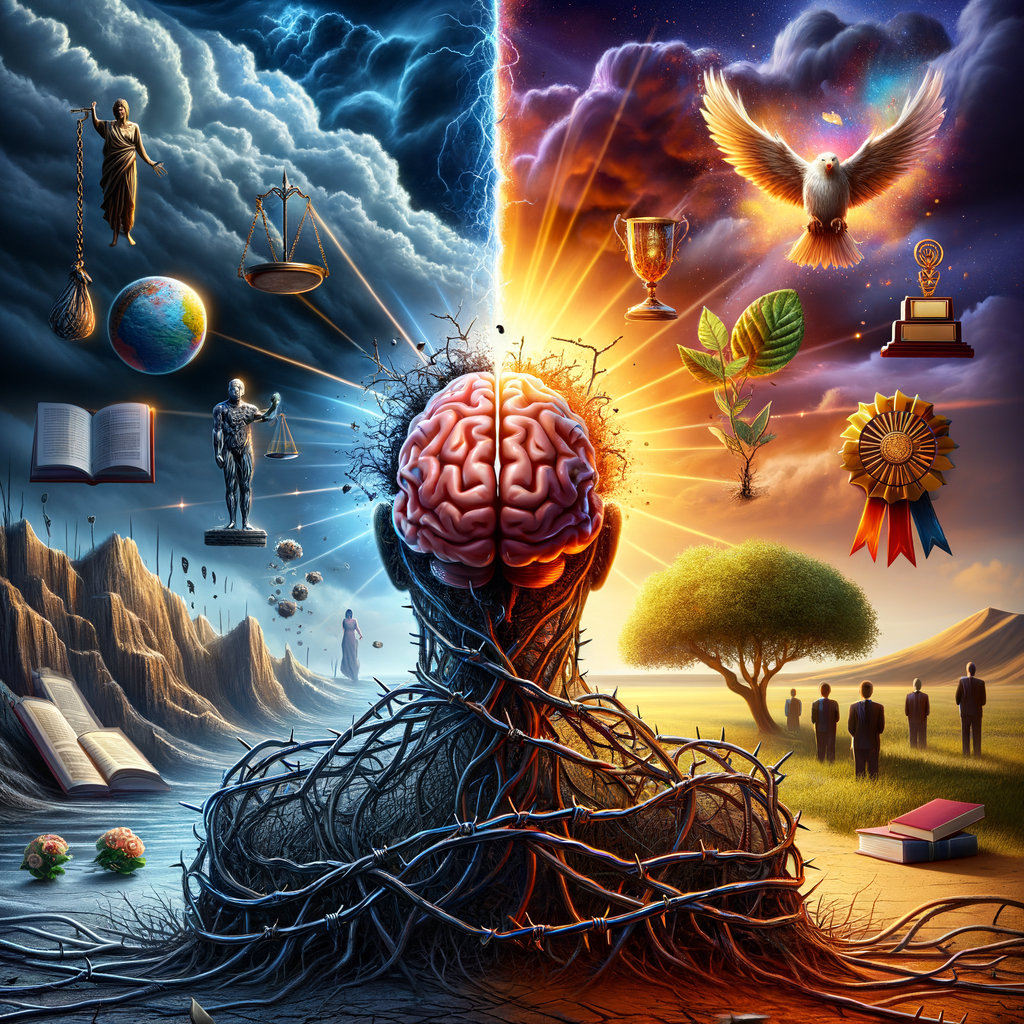
Body Language:
Understanding Unspoken Communication
BODY LANGUAGE IS OFTEN OVERLOOKED WHEN PEOPLE THINK ABOUT COMMUNICATION. They think of the phrases we say, the...

Emotional Intelligence:
A Journey to Unlock the Power Within
EMOTIONAL INTELLIGENCE IS AN INCREASINGLY IMPORTANT COMPONENT, as we work to either harness our emotions or help understand the...

The Law of Assumption:
Unlocking Wealth and Abundance
THE LAW OF ASSUMPTION IS NOT JUST A GUIDING PRINCIPLE; IT IS A TRANSFORMATIVE FORCE in personal development and...

Unleash Your Potential:
A Comprehensive Guide to Personal Development
TRANSFORM YOUR LIFE BY EMPOWERING YOURSELF WITH THE KNOWLEDGE AND TOOLS for personal development. This blog post will guide...

Negative Thinking:
Kill It and Transform Your Mindset for Success
NEGATIVE THINKING CAN QUICKLY TAKE OVER WHEN LIVING IN A WORLD OF CHALLENGES. However, by actively working to...

An Abundance Mindset:
The Key to Financial Success
ABUNDANCE MINDSET IS THE IDEA THAT THERE ARE ENOUGH RESOURCES AND OPPORTUNITIES in the world for everyone. Instead...

Reinventing Your Best Self:
Breaking Free from Old Patterns
HAVE YOU EVER THOUGHT ABOUT HOW YOUR LIFE HAS LED YOU TO WHERE YOU ARE NOW? It’s easy to...

Be Here, Be Happy:
The Case for Focusing on the Present Moment
LIFE IS A SERIES OF MOMENTS, YET FOR MANY OF US, THE PRESENT IS ECLIPSED by regrets of...

Authenticity
The Power of Being Unapologetically You
AUTHENTICITY IN A WORLD WHERE EVERYONE APPEARS TO BE TRYING TO FIT IS IN YOUR SUPERPOWER. After all, what...

Lifelong Learning
Unlock Your Potential and Grow Every Day
LIFELONG LEARNING OPENS A WORLD OF POSSIBILITIES, offering countless daily opportunities for growth and discovery. It’s not just...